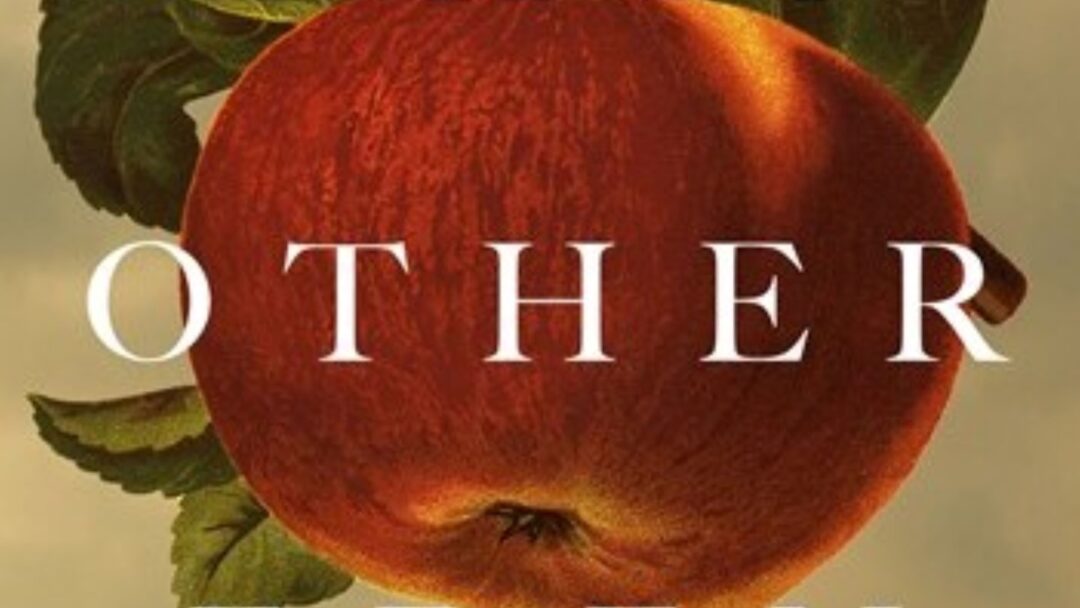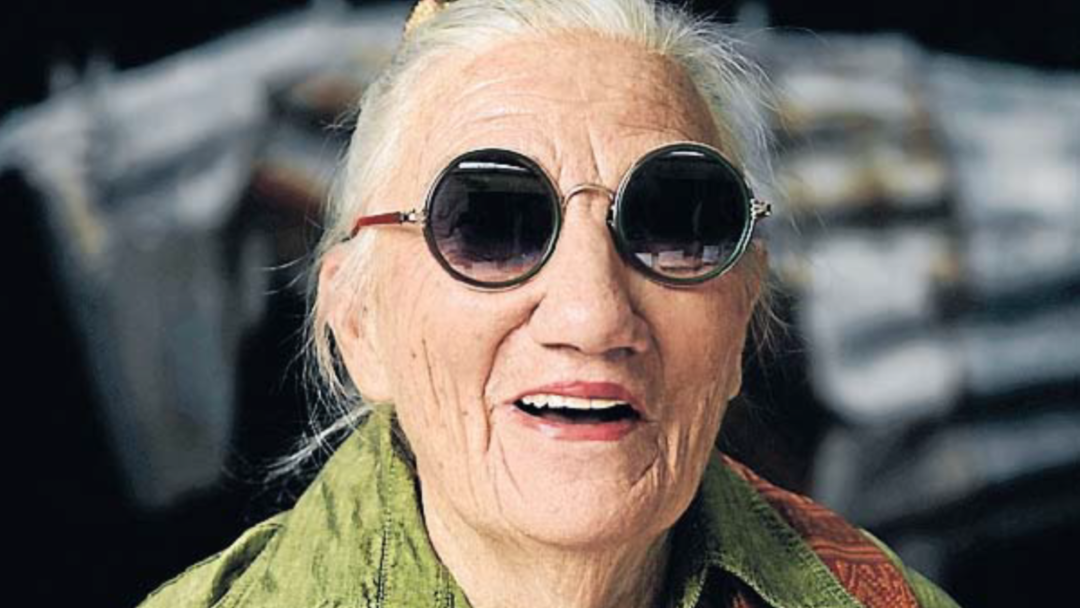Audio
Murder mysteries
Hear This by
Vision Australia3 seasons
24 May 2024
27 mins
Murder mystery novels available from the Vision Australia library are reviewed and sampled.

Hear This is a weekly presentation from the Vision Australia Library service, folr people with blindness or low vision.
Host Frances Keyland brings us up to date with what’s on offer - with spoken excerpts, reviews and Reader Recommends.
This episode features a range of murder mystery novels.
00:10UU
What do you. Take a look inside...
00:25S1
Hello and welcome to Hear This. I'm Frances Keyland and you're listening to the Vision Australia Library radio show, where we talk about books and the Vision Australia library collection. So I do hope you enjoy the show.
Let's start off with a reading recommended and quite an exciting time to mention this book. This is the Thursday Murder Club by Richard Osman, and thank you to Owen for this recommendation. In a peaceful retirement village, four unlikely friends meet weekly in the Jigsaw Room to discuss unsolved crimes. Together, they call themselves the Thursday Murder Club when a local developer is found dead with a mysterious photograph left next to the body, the Thursday Murder Club suddenly find themselves in the middle of their first live case as the bodies begin to pile up, can our unorthodox but brilliant gang catch the killer before it's too late? Let's hear a sample of the Thursday Murder Club. And this is first in the series, which is called the Thursday Murder Club. It's narrated by Lesley Manville.
01:32S2
Killing someone is easy. Hiding the body. Now that's usually the hard part. That's how you get caught. I was lucky enough to stumble upon the right place, though. The perfect place, really. I come back from time to time just to make sure everything is still safe and sound. It always is, and I suppose it always will be. Sometimes I'll have a cigarette, which I know I shouldn't, but it's my only vice. Part one. Meet new people and try new things. Chapter one. Joyce. Well, let's start with Elizabeth, shall we? And see where that gets us. I knew who she was. Of course, everybody here knows Elizabeth. She has one of the three bed flats in Larkin Court. It's the one on the corner with the decking. Also, I was once on a quiz team with Stephen, who for a number of reasons is Elizabeth's third husband.
I was at lunch. This is 2 or 3 months ago, and it must have been a Monday because it was shepherd's pie. Elizabeth said she could see that I was eating, but wanted to ask me a question about knife wounds if it wasn't inconvenient. I said, not at all, of course please. Or words to that effect. I won't always remember everything exactly. I might as well tell you that now. So she opened a manila folder, and I saw some typed sheets and the edges of what looked like old photographs. Then she was straight into it. Elizabeth asked me to imagine that a girl had been stabbed with a knife. I asked what sort of knife she had been stabbed with, and Elizabeth said, probably just a normal kitchen knife, John Lewis. She didn't say that, but that was what I pictured.
03:25S1
And that was a sample of the Thursday Murder Club by Richard Osman. And people may remember him on the ABC show that was from England called Pointless. He was like the adjudicator in that show. He wasn't the host, he was... an adjunct to the host and very intelligent, apparently very tall too. Richard Osman, Richard is spelt [spells author's name]. That book goes for 11 hours and 40 minutes. We have three books in the series, and the fourth book, hopefully, the library will be getting soon. These books have taken the world by storm. The first one, which we just had a sample of, was published in 2020. And the inspiration for the book, and I'm reading from Wikipedia here, came from a visit that Richard Osman made to an upmarket retirement village, and he wrote the book over 18 months in secret.
The Guardian described it as the fastest selling adult crime debut in recorded history. There is a fifth book that's coming out in 2025, so there are four books in the series, three in the library at the moment. And what's exciting about this is that there's also a series going to be made of this starring Helen Mirren, playing Elizabeth, one of the main characters, Pierce Brosnan playing Ron and Ben Kingsley playing Ibrahim. And I think Celia Imrie has now joined the cast as well. So that's going to be a Netflix distributed series. Quite exciting news and what a phenomenal, phenomenal success over the last four years for Richard Osman. And thank you, Owen, for recommending the book.
I'm going to stick with mysteries here. Sad news recently with the passing of author C.J. Sansom, whose Shardlake mystery series, all set in the 1500s, was a great success and very respected too. So he has the research down pat and the Shardlake series. There are quite a few books in the library. Let's start off with the first one, Dissolution. It is 1537, a time of revolution that sees the greatest changes in England since 1066. Henry the Eighth has proclaimed himself supreme head of the church under the orders of Thomas Cromwell. Matthew Shardlake, lawyer and long time supporter of reform, has been sent to uncover the truth behind some dark happenings at Skaane Sea Monastery, but the investigation soon forces Shardlake to question everything that he intrinsically believes. Let's hear a sample of Dissolution by C.J. Sansom. It's narrated by Stephen Crossley.
06:23S3
What is passing here? I asked. Pepper laughed. There is a woman within said to have a bird from the Indies that can converse as freely as an Englishman. She is going to bring it out. The street sloped downwards to the tavern so that despite my lack of inches, I had a good enough view. A fat old woman in a greasy dress appeared in the doorway holding an iron pole set on three legs. Balanced on a cross piece was the strangest bird I had ever seen. Larger than the biggest crow. It had a short beak ending in a fearsome hook. And red and gold plumage so bright that against the dirty gray of the street it almost dazzled the eye. The crowd moved closer. Keep back, the old woman called in shrill tones. I have brought Tabitha out, but she will not speak if you jostle round her. Let's hear it talk. Someone called out, I want paying for my trouble. The bell damned shouted boldly. If you all throw a farthing at her feet, Tabitha will speak.
I wonder what trickery this is. Pepper scoffed, but joined others in hurling coins at the foot of the pole. The old woman scooped them up from the mud, then turned to the bird. Tabitha. She called out, say God save King Harry. A mass for poor Queen Jane. The creature seemed to ignore her, shifting on its scaly feet and eyeing the crowd with a glassy stare. Then suddenly it called out in a voice very like the woman's own God save King Harry mass for Queen Jane. Those at the front took an involuntary step back, and there was a flurry of arms as people crossed themselves. Pepper whistled. What do you say to that Shardlake?
08:24S1
And that was a sample of Dissolution, which I hope gives you a bit of an idea of the tone of the books and the character of Shardlake, and a sense of wonder that was pervading the world at that time. C.J. Sansom is simply [spells author's name]. And that book goes for a nice chunk of 14.5 hours. And as I said, it's part one in the Shardlake series. Shardlake is spelt [spells it]. There are seven books in the library in the Shardlake series, but he's also written a couple of others that are also historical fiction, but set around the 1940s. There's Winter in Madrid, sort of centering on the aftermath of the Spanish Civil War, and Dominion, which is actually set in the 1950s, 12 years since Churchill lost the Appeasers and Britain surrendered to Nazi Germany after Dunkirk. So that is a alternative history. Looking at what would have happened in Britain in the 50s if Churchill had have surrendered.
There is a Shardlake television series playing on Disney, a streaming on Disney based on his novel Dissolution. A Sunday Times review commented about his work historical crime fiction is sometimes little more than a modern adventure in fancy dress. Not so the novels of CJ Sansom, whose magnificent books set in the reign of Henry the Eighth, bring to life the sounds and smells of Tudor England. And I'm reading from Wikipedia here. And in an interview with The Guardian, Sansom explained his reasons for making his protagonist an attorney. I thought it made sense for Shardlake to be a lawyer for a number of reasons. First, the law was my profession. I find legal practice endlessly interesting. Second, it existed then and now, so it provides a point of contact for readers. And third, it's democratic. It offers a way into any number of mysteries and puts Shardlake in the way of an endless variety of characters.
He won numerous awards. The the latest 1 in 2022 received, he received the Cartier Diamond Dagger from the Crime Writers Association. Sadly, he passed away on the 27th of April this year at the age of only 71.
Now to another mystery, The Feral Detective by Jonathan Lethem. Phoebe Siegler first meets Charlie Heist in a shabby trailer on the eastern edge of Los Angeles. She's looking for her friend's missing daughter, Arabella, and hires heist, a laconic loner who keeps his pet opossum in a desk drawer to help the unlikely pair navigate the enclaves of desert dwelling vagabonds and find that Arabella is in serious trouble. Caught in the middle of a violent standoff that only heist mysteriously can end, Phoebe's trip to the desert was always going to be strange, but it was never supposed to be dangerous. Let's hear a sample of The Feral Detective by Jonathan Lethem. It's narrated by Sarah Borges.
11:41S4
I was 20 minutes late for my appointment with the Feral Detective because I drove past the place twice. In daylight, broad, flat morning in a rental car with GPS. That only sort of betrayed me. It was the feeling, the place inspired that betrayed me. Worse, the feeling specifically that it was a place for driving past and so my foot couldn't find the brake. White stucco with red wood clad pillars and a terracotta tile roof. A deck ran around the second floor, accessible from stairs on the parking lot side. The windows were all barred. The signage at the various doors was either crappy plastic or just banners printed vertically, nailed through eyelets to the pillars. One said only tattoo. Another spa upstairs. Warrior Sutra body piercing in the window of spa in front of closed curtains. Neon bulbs in red and blue said open. I assumed I knew what spa meant in this case.
It was nine on a Saturday morning, January 14th, 2017 or 920 since I was, as I said, late. It seemed impossible to be late for an appointment with anything at a building such as this. To make an appointment here was to have dropped through the floor of your life out of ordinary time. You weren't meant to be here at all if you were me. Having missed the destination, I drove a ways on Foothill Boulevard before figuring it out. The malls and gas stations and chain restaurants took on the quality of a single, repeated backdrop, such as Fred Flintstone would motor past. Space was different here. I doubled back and slowed. The building wasn't dark exactly. Nothing could be in this glare, but it had a warty density that made it easy to miss.
13:39S1
And that was The Feral Detective by Jonathan Lethem. Jonathan is [spells name]. The book goes for seven hours and 40 minutes. The book was published in 2019, and The Guardian called it "a road trip through the California desert becomes a thumping political allegory for a divided nation." And again, this is from the article, an article from The Guardian that was written by Steven Poole. Lethem said he felt he should be an honest witness, recording my own reactions to the coming of President Trump and the main character. Phoebe, having freshly quit her job at The New York Times, goes in search of her friend's missing teenage daughter, and she's also particularly anti-Trump and enraged by what's going on. Charlie Heist is a craggy, taciturn Pi in a red leather jacket.
Now let's head off to Tuscany, beautiful Tuscany, for another mystery, which would be a bit like the Thursday Murder Club. It's a bit of a cosy mystery, so no heavy violence and no high levels of of of bad language. This is Murder in Tuscany by T.A. Williams. Nestled high in the Tuscany hills lies Villa Volponi, home to renowned crime writer Jonah Moore and his creative writing course. It's also the last place retired DCI Dan Armstrong expected to spend his retirement. But only days into the course, Jonah Moore is found stabbed to death with his award winning Silver Dagger, and Dan finds himself pulled out of retirement with a killer to catch. Let's hear Murder in Tuscany by T.A. Williams. It's part one of the Armstrong and Oscar series, and it's narrated by Simon Mattox.
15:35S5
I've never tried it, and I have no wish to, but I imagine there's a moment when you're about to do your first parachute jump, and you find yourself standing at the open door of an aircraft thousands of feet off the ground, when all that's going through your head is, what the hell am I doing here? That's the way I felt that day. I'd stop the car right in front of the rusty iron gates. It's not that they were closed. In fact, from the look of them almost submerged beneath ivy and tortuous climbing weeds, they'd been open for decades. I'd stopped to consider my options, and they were quite simply binary. Stay or go. The white gravel drive curled gently upwards towards a big clump of cypress trees higher on the hillside, partly hidden in the midst of them. I could just about make out the villa, which the website described as a stunning piece of Renaissance architecture.
It was a large building with what looked like a little tower rising from the center of the roof. The walls were a sun scorched ochre color, not dissimilar to the bone dry earth surrounding the dusty olive trees on both sides of the drive, and from here it looked as though most of the faded green shutters on the windows were closed, presumably against the baking heat of the July sun. There was no escaping the fact that it was a charming view and a beautiful building, but my heart sank all the. Same as I stared at it. What the hell was I doing here? I was still seriously considering whether to turn around and head back to the airport when there was a strident toot of a horn glancing in the mirror. I saw the long, sleek shape of a flashy looking sports car behind me. If the raging bull on the bonnet had been real, it would have been pawing the ground in frustration, selecting first gear.
I hastily drove in through the gates and pulled over, so the bright red beast behind could overtake my little rental car. As the other vehicle drew level, it slowed and the window on the passenger side opened. Considering the roof was down, this hardly seemed necessary, but the driver was clearly keen to be heard. I opened my own window to hear what the man had to say, and flinched at the impact of the hot, dry air on my face after the air conditioned interior. Tuscany certainly gets hot in July.
17:46S1
That was Murder in Tuscany by T.A. Williams, another author with two initials for the first name, so [spells name]. And that book goes for seven hours and 15 minutes. That's followed by Murder in Chianti and then Murder in Florence, Murder in Siena, Murder on the Matterhorn. So if you enjoyable books, they're taking you around the world, which is a lovely way. Sometimes these are particularly with the cosy mysteries, where you get a little bit of a travelogue feel, as well as a mystery to solve. And if people are wondering who Oscar is, that's his dog. So DCI Armstrong has a dog, a Labrador, a black lab called Oscar, and I'm on the Simon and Schuster website here. Publishing company.
About the author. He lives in Devon with his Italian wife. He was born in England of a Scottish mother and a Welsh father, and after a degree in modern languages he lived and worked in Switzerland, France and Italy... He's taught Arab princes, Brazilian beauty queens and Italian billionaires, and his hobby is long distance cycling. But his passion is writing. For those of us who love short stories, there are so many books by her in the library. This one's title is Runaway. The runaway of the disturbing title story is Karla, a congenital bolter who is neighbourly fantasies that take on a frightening afterlife. In other stories, a stage struck a girl finds life is more Shakespearean than even she imagines, while Tessa, a young countrywoman with strange powers, cannot foresee what will happen if she makes off with a plausible charmer.
The stories unravel layers of the past and different versions of the truth. The characters learn that if you look too closely at anything the past, the truth, it may crumble. Let's hear a sample of runaway, the beginning of the first story featuring Carla by Alice Munro. It's narrated by Liza Ross.
20:04S6
Carla heard the car coming before it topped the little rise in the road that around here they called a hill. It's her, she thought. Mrs. Jameson. Sylvia home from her holiday in Greece. From the barn door, but far enough inside that she could not readily be seen. She watched the road Mrs. Jameson would have to drive by on her place, being half a mile farther along the road than Clark and Carla's. If it was somebody getting ready to turn in at their gate, it would be slowing down by now. But still, Cala hoped. Let it not be her. It was. Mrs. Jameson turned her head once. Quickly. She had all she could do, manoeuvring her car through the ruts and puddles the rain had made in the gravel. But she didn't lift a hand off the wheel to wave. She didn't spot Kala.
Carla got a glimpse of a tanned arm, bare to the shoulder. Hair bleached, a lighter color than it had been before. More white now than silver blonde, and an expression that was determined and exasperated and amused at her own exasperation. Just the way Mrs. Jameson would look, negotiating such a road. When she turned her head, there was something like a bright flash of inquiry, of hopefulness that made Carla shrink back. So. Maybe Clark didn't know yet. If he was sitting at the computer, he would have his back to the window in the road. But Mrs. Jameson might have to make another trip. Driving home from the airport, she might not have stopped for groceries. Not until she'd been home and figured out what she needed. Clark might see her then, and after dark, the lights of her house would show. But this was July, and it didn't get dark till late.
22:01S1
And that was Runaway. A sample of by Alice Munro. Alice is [spells name]. And there are eight books in audio by Alice Munro in the collection. If you want to start at the beginning of her writing career, Munro's highly acclaimed first collection of stories, Dance of the Happy Shades, was published in 1968, that is also in the collection. I'm reading from Wikipedia here. Many of Munro's stories are set in Ontario, so there's a strong regional focus in her books. And another feature is her omniscient narrator, with her characters often confronting deep rooted customs and traditions. Canadian novelist Margaret Atwood has called Munro a pioneer for women and for Canadians.
Let's finish off today's show with Angela O'Keeffe's book, The Sitter. Paris 2020. A writer is confined to her hotel room during the early days of the pandemic, struggling to finish a novel about Hortense Cezanne, wife and sometime muse of the famous painter. Dead for more than a century. Hortense has been reawakened by this creative endeavor and now shadows the writer through the locked down city. But Hortense, always subject to the gaze of others, is increasingly intrigued by the woman before her. Who is she, and what event hides in her past? Let's hear a sample of The Sitter by Angela O'Keeffe. It's narrated by Victoria Howell.
23:41S7
There are two people in the room. A woman in her 60s stands at the window. She has just taken in the view as I have described it. The two women in the street, their brown paper bags of groceries from the top of one protrude something leafy from another, a baguette. The child striding ahead of them, full of curiosity and an easy confidence. The woman at the window has long greyish silver hair, streaked here and there with black. It looks like the remnants of a fire, soot and half burnt logs arranged into something smooth and almost pleasing. The sunlight streaming in the window highlights the tiny lines that fan out from the corners of her eyes and around her lips. The other person in the room is me. Marie-hortense. Fiquet. Cézanne. You may recognize my last name. Yes. That Cézanne, the French painter Paul Cézanne, 1839 to 1906, was my husband. Arguably most famous for painting apples. He painted my portrait far more times than he ever painted apples. 29 times, to be exact.
It is March 2020 and I am here in this hotel with the woman with the silver black hair and the lined lips. In the city where I worked as a bookbinder and an artist's model over a hundred years ago, where I met my husband and gave birth to our son, and where I spent backbreaking hours sitting for my husband as he painted my portrait while the sky slid by through the window. Blinking day, blinking night. The birds in that sky were always happy. As I sat, I had thoughts such as this observation about birds that never made it into any one of those portraits. My husband used to say that if he couldn't find in himself a feeling for a part of the subject he was painting, then he was compelled to leave that section of the painting blank.
25:45S1
That was The Sitter by Angela O'Keeffe. Angela is spelt [spewlls name]. And that book goes for... very short one, three hours and 40 minutes. So the narrator of the book is actually Hortense Cézanne. We see... things through her eyes throughout the book. The Guardian called this novel, "compelling and playful and intricately crafted." And there is a review in The Guardian by Fiona Wright published in August of last year.
Thank you for listening today. My name is Frances KeYland and you've been listening to Hear This on Vision Australia Radio. If you would like to find out more about the books, if any of those books strike your fancy, or if you would like to join the library and find out more about what's on offer, give the library a call on 1300 654 656. That's 1300 654 656. Or you can email library@visionaustralia.org ... That's library at Vision Australia dot org. I hope you have a lovely week and we'll be back next week with more Hear This.
Continue listening

On Hear This, latest books in the Vision Australia library. This edition, award-winning Oz fiction.
Australian fiction
Hear This by Vision Australia
4/8/2023
•28 mins
Audio

Books from the Vision Australia library - this episode featuring memoirs and family histories.
Family histories
Hear This by Vision Australia
11/8/2023
•27 mins
Audio

This edition: Michael Parkinson remembered and an assortment of latest books from the Vision Australia library.
Vale Michael Parkinson
Hear This by Vision Australia
18/8/2023
•26 mins
Audio

Hear This reviews latest books from Vision Australia library - this edition starting with two Booker Prize aspirants.
Booker Prize hopefuls
Hear This by Vision Australia
25/8/2023
•27 mins
Audio

Hear This interviews Tracey Chevalier, author of Girl with a Pearl Earring.
Girl with a Pearl Earring
Hear This by Vision Australia
8/9/2023
•28 mins
Audio

Hear This samples a variety of audio books from the Vision Australia library.
Top picks from audio books
Hear This by Vision Australia
15/9/2023
•28 mins
Audio

Events and activities at Vision Australia library - and latest picks from its books.
Community engagement
Hear This by Vision Australia
22/9/2023
•27 mins
Audio

This edition of Hear This from the Vision Australia library opens with a discussion of banned books.
Banned books
Hear This by Vision Australia
6/10/2023
•28 mins
Audio

Hear This features latest books and events at the Vision Australia library.
Latest events and books
Hear This by Vision Australia
13/10/2023
•27 mins
Audio

Latest books from the Vision Australia library - including childhood tales and a John Grisham thriller.
Childhood tales and a Grisham thriller
Hear This by Vision Australia
20/10/2023
•28 mins
Audio

Latest books from the Vision Australia library - including a novel by Australian Sam Drummond.
Oz writer Sam Drummond
Hear This by Vision Australia
3/11/2023
•27 mins
Audio

Books from the Vision Australia library - including a memoir by a friend of Anne Frank.
Anne Frank's friend
Hear This by Vision Australia
10/11/2023
•28 mins
Audio

Book reviews and excerpts from Vision Australia library - including a wartime struggle for survival.
Survival in wartime
Hear This by Vision Australia
24 November 2023
•27 mins
Audio

A special seasonal edition reviews Christmas murder stories available from Vision Australia library.
Yuletide Homicide
Hear This by Vision Australia
8 December 2023
•28 mins
Audio

Veteran talking book reader Tony Porter reviews his many voices.
The many voices of Tony Porter
Hear This by Vision Australia
5 January 2024
•27 mins
Audio

What's new in Vision Australia library of Braille and audio books - including new Australian works.
New Australian books
Hear This by Vision Australia
12 January 2024
•28 mins
Audio

Vision Australia librarian talks of coming events and latest books for people with blindness and low vision.
Coming events and new books
Hear This by Vision Australia
26 January 2024
•28 mins
Audio

Review of books from the Vision Australia library - from a broad international range.
Books from Japan, US, Australia and Sweden
Hear This by Vision Australia
2 February 2024
•27 mins
Audio

New books in the Vision Australia library - from E.L.Doctorow to Alan Bennett.
Reasons Not to Worry, Wild Things... and Alan Bennett
Hear This by Vision Australia
9 February 2024
•28 mins
Audio

Latest events and books from Vision Australia Library, featuring its Community Engagement Co-ordinator.
Vision Library latest with Leeanne
Hear This by Vision Australia
16 February 2024
•28 mins
Audio

Features Jamie Kelly of Vision Australia Library, updating us on its website catalogue. And other new books.
Vision Australia library online, and Jelena Dokic
Hear This by Vision Australia
23 February 2024
•29 mins
Audio

New books in the Vision Australia Library - in this edition, books about paintings.
Books about paintings
Hear This by Vision Australia
1 March 2024
•26 mins
Audio

From the Vision Australia Library, women's memoirs on International Women's Day.
Women's memoirs on IWD
Hear This by Vision Australia
8 March 2024
•28 mins
Audio

Coming events and books at Vision Australia Library for people with blindness or low vision.
Coming events at Vision Library - and a Kerouac classic
Hear This by Vision Australia
15 March 2024
•29 mins
Audio

Latest books from Vision Australia Library - this week, some top Oz and worldwide novels.
Top Oz and world novels
Hear This by Vision Australia
29 March 2024
Audio

Coming events at Vision Australia Library in connection with the Melbourne Writers' Festival.
Melbourne Writers' Festival
Hear This by Vision Australia
5 April 2024
•28 mins
Audio

Coming events and new books at the Vision Australia Library for blind and low vision people.
Event update and more new books
Hear This by Vision Australia
12 April 2024
•29 mins
Audio

How printed works are brought to life as audio books in the Vision Australia Library.
Audio book narrators
Hear This by Vision Australia
19 April 2024
•28 mins
Audio

ANZAC Day edition of this series from the Vision Australia library for people with blindness or low vision.
ANZAC sniper
Hear This by Vision Australia
26 April 2024
•28 mins
Audio

From the Vision Australia library: a South African childhood, AI issues and an American First Lady.
Apartheid, AI and Michelle Obama
Hear This by Vision Australia
3 May 2024
•27 mins
Audio

Forthcoming Vision Library events including those connected with the Melbourne Writers' Festival.
Melbourne Writers' Festival and Vision Library events
Hear This by Vision Australia
10 May 2024
•28 mins
Audio

Murder mystery novels available from the Vision Australia library are reviewed and sampled.
Murder mysteries
Hear This by Vision Australia
24 May 2024
•27 mins
Audio

Celebrating National Reconciliation Week with books from Vision Australia Library... plus some user favourites.
Reconciliation Week and Reader Recommends
Hear This by Vision Australia
31 May 2024
•27 mins
Audio

Reader Recommends and crime fiction from the Vision Australia library for blind and low vision people.
This Other Eden... and some other readin'!
Hear This by Vision Australia
7 June 2024
•29 mins
Audio

Vision Library's coming community events and latest books for people with blindness or low vision.
Coming events and latest books
Hear This by Vision Australia
14 June 2024
•29 mins
Audio

Books in Vision Australia library for people with impaired vision - this time on the theme of Darkness.
Darkness
Hear This by Vision Australia
21 June 2024
•29 mins
Audio

New books in Vision Library including the Wikileaks founder's autobiography.
Julian Assange - by the man himself
Hear This by Vision Australia
28 June 2024
•29 mins
Audio

Community events soon to happen at Vision Australia Library for people with blindness and low vision.
Coming events at Vision Australia Library
Hear This by Vision Australia
5 July 2024
•28 mins
Audio

Two well-known authors open the latest look at new publications in the Vision Australia Library.
Hilary Mantel, Bret Easton Ellis and more
Hear This by Vision Australia
19 July 2024
•27 mins
Audio

Vision Library series, this episode features new Australian crime novels written by women.
Australian sisters in crime
Hear This by Vision Australia
26 July 2024
•28 mins
Audio

Latest publications in the Vision Library, starting with a biography of John Farnham.
He's the Voice
Hear This by Vision Australia
2 August 2024
•27 mins
Audio

Latest reviews and readings from publications in the Vision Library for people with print disabilities.
Race, history and Black Ducks
Hear This by Vision Australia
9 August
•28 mins
Audio

Books from Vision Library reviewed include a Julie Andrews memoir, Guardian newspaper picks and more.
Julie remembers and The Guardian recommends
Hear This by Vision Australia
30 August 2024
•27 mins
Audio

An Australian author discusses her works, plus reviews of other books in the Vision Library.
Jane Rawson - author
Hear This by Vision Australia
6 September 2024
•28 mins
Audio

Update on forthcoming events and available publications at the Vision Australia Library.
What's On at Vision Australia Library
Hear This by Vision Australia
13 September 2024
•27 mins
Audio

Accessible Vision Library books reviewed, including murder mysteries and award nominees.
Mysteries and prize contenders
Hear This by Vision Australia
20 September
•27 mins
Audio

Reviews and events at Vision Australia Library to mark World Sight Day, October 10.
World Sight Day and Barbra Streisand
Hear This by Vision Australia
4 October 2024
•28 mins
Audio

What's on in the Vision Library, and the works of Ira Levin and Han Kang.
Library events, Ira Levin and Han Kang
Hear This by Vision Australia
11 October 2024
•28 mins
Audio

Vision Library publications reviewed - opening with some tributes to writers passed.
Tributes, and more
Hear This by Vision Australia
18 October 2024
•28 mins
Audio

Reviews and readings from Australian, British and US books in the Vision Australia Library.
Tomorrow, Questions, Mistresses and Murder
Hear This by Vision Australia
25 October 2024
•28 mins
Audio

Reviews and readings from books available in the Vision Australia Library.
From Australian thrillers to the US and South Africa
Hear This by Vision Australia
1 November 2024
•28 mins
Audio

A wide range of books in the Vision Australia Library are reviewed and sampled.
Leonard Cohen, ghosts and Broken Hill
Hear This by Vision Australia
8 November 2024
•28 mins
Audio

Events and publications at Vision Australia Library for people with blindness or low vision.
Vision Library: what's in and what's on
Hear This by Vision Australia
15 November 2024
•28 mins
Audio

Interview with an award-winning author about her life and work... plus more publications in the Vision Australia Library.
Jacqueline Bublitz
Hear This by Vision Australia
22 November 2024
•28 mins
Audio

Vision Australia Library for people with vision impairment updates its coming events and latest publications.
Coming soon to the Vision Library
Hear This by Vision Australia
13 December 2024
•28 mins
Audio

Christmas-themed books in the Vision Australia Library for people with vision impairment.
Christmas offerings
Hear This by Vision Australia
20 December 2024
•28 mins
Audio

New books for 2025, fiction and non-fiction - vale Leunig!
Fiction and non-fiction for the New Year
Hear This by Vision Australia
3 January 2025
•27 mins
Audio

Reviews of varied books from the Vision Library - some centring on radio stations or radio plays.
Radio drama
Hear This by Vision Australia
10 January 2025
•29 mins
Audio

What's On at Vision Australia Library - and latest publications accessible to people with blindness and low vision.
Coming events in 2025 - and latest publications
Hear This by Vision Australia
24 January 2025
•28 mins
Audio

Writings on Marianne Faithfull and award-contending works in the Vision Australia Library are reviewed.
Vale Marianne... and award-nominated books
Hear This by Vision Australia
31 January 2025
•28 mins
Audio

Special guest highlights interesting events in libraries around the country... and some new books.
What's new in libraries around Australia
Hear This by Vision Australia
7 February 2025
•27 mins
Audio

Accessible publications chosen for February 14: Library Lovers' Day, Valentines Day and World Radio Day.
Library Lovers' Day
Hear This by Vision Australia
14 February 2025
•29 mins
Audio

An update on Vision Australia Library's coming events and latest blind-accessible books.
Coming events and new books
Hear This by Vision Australia
25 February 2025
•29 mins
Audio

Reviews of accessible books including a John Steinbeck classic, and news of a forthcoming writers' festival.
Brimbank and Steinbeck
Hear This by Vision Australia
28 February 2025
•29 mins
Audio

Coming courses and other events at Vision Australia Library - and latest accessible books.
Courses, events and latest publications
Hear This by Vision Australia
14 March 2025
•28 mins
Audio

Special with interviews and readings at a writers' festival and writing competition in Melbourne.
Brimbank Writers' and Readers' Festival and Micro-fiction Competition
Hear This by Vision Australia
21 March 2025
•30 mins
Audio

An interview with an Australian woman writer and reviewer, about her favourite female authors.
Women authors with Stella Glorie
Hear This by Vision Australia
28 March 2025
•29 mins
Audio

Reviews and excerpts from accessible works in the Vision Australia Library, starting with a new Australian novel.
Reader recommends a Deal
Hear This by Vision Australia
4 April 2025
•27 mins
Audio

Vision Australia Library brings news of accessible events at the forthcoming Melbourne Writers' Festival.
Melbourne Writers' Festival 2025
Hear This by
11 April 2025
Audio

Vision Australia Library pays tribute to the late Australian author of the Miss Fisher mysteries and more.
Vale Kerry Greenwood
Hear This by Vision Australia
18 April 2025
•28 mins
Audio

ANZAC Day special featuring reviews and short readings from books about the First World War.
Reading about World War 1
Hear This by Vision Australia
25 April 2025
•28 mins
Audio

Reviews and readings of user favourites in Vision Library - including an Antarctic adventure.
Reader recommended
Hear This by Vision Australia
2 May 2025
•28 mins
Audio

What's accessible in the Vision Australia Library - including new books by Kate Grenville and Eric Idle.
Always look on the bright side of... time and place
Hear This by Vision Australia
9 May 2025
•29 mins
Audio

First part of an interview with an Australian author, military historian and war veteran.
Barry Heard's true tales of war (part 1)
Hear This by Vision Australia
16 May 2025
•28 mins
Audio